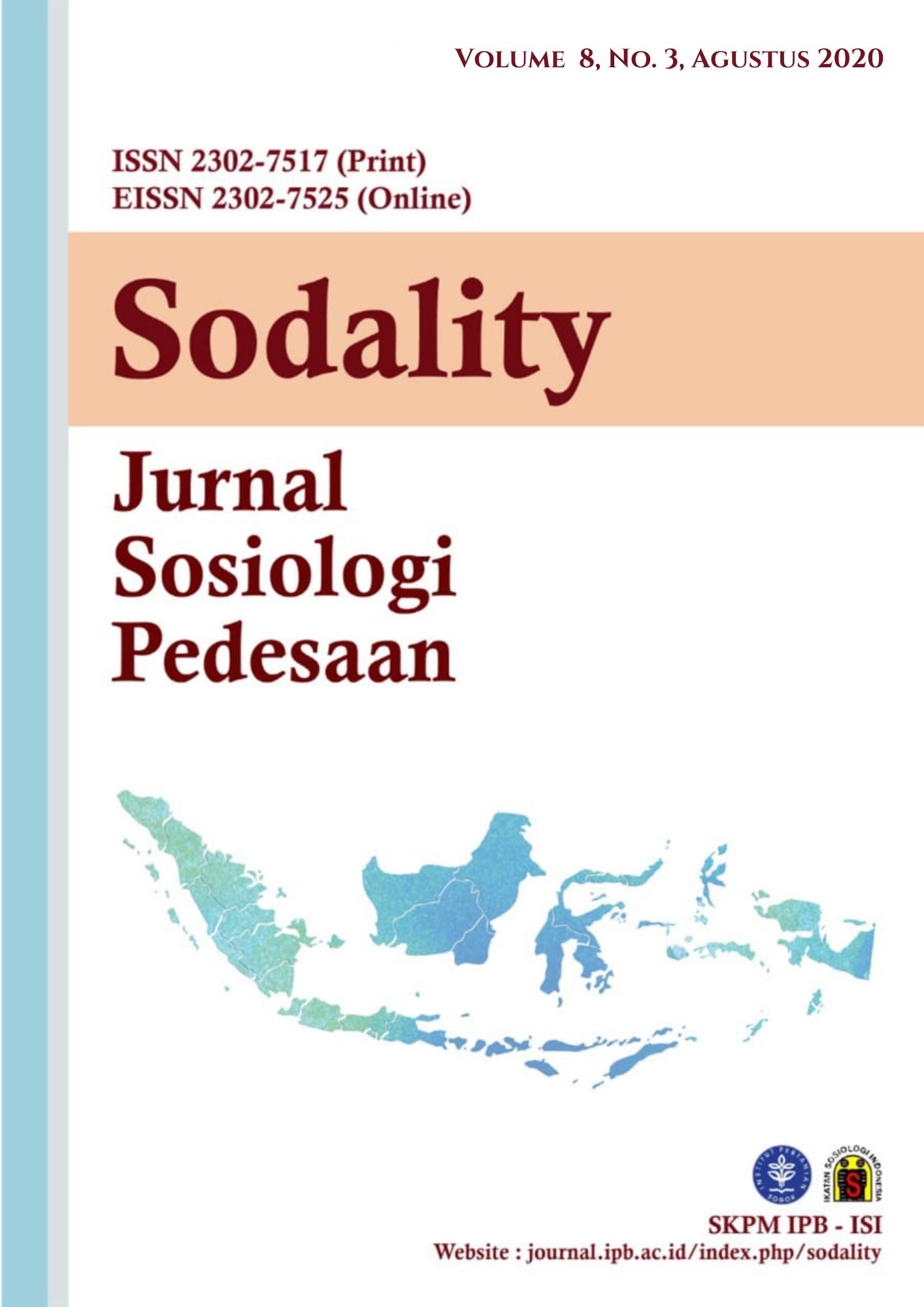Local Knowledge as Community Reaction in Management of Disaster
(Ethnographic Study on Native Brau Villagers, Batu, Indonesia)
Abstract
This study aims to undertake a series of arguments to reinforce the role of local knowledge in facing environmental disaster risk. The symptoms of environmental change are observed from actor perspectives which are relatively close to the events of natural disasters so that they are recorded in their cultural expression. Ethnographic methods were chosen to illustrate how the actions are carried out and who are the actors involved in anticipating environmental disasters. Data were obtained from five informants, namely one key informant, two main informants, and two supporting informants. The results of this study indicate that: (1) local knowledge contributes positively to encourage actors to do best practices to anticipate environmental disasters, (2) there are social effects in the form of rescuing villagers or residents from natural disasters physically, mentally and spiritually.
References
Antweiler, C. (2004). Local Knowledge Theory and Methods: An Urban Model from Indonesia. In J. P. Bicker, Alan, Paul Silitoe (Ed.), Investigating Local Knowledge: New Directions, New Approaches (p. 200). UK: Ashgate Publishing.
Battista, F. and B. (2004). The Role of Local Institutions in Reducing Vulnerability to Reccurent Natural Disasters and in Sustainable Livelihoods Development. Rome.
Daulay, Z. (2011). Pengetahuan Tradisional: Konsep, Dasar Hukum, dan Praktiknya. Jakarta: PT RajaGrafindo Persada.
Deflem, M. (2008). Sociology of Law: Visions of Scholarly Traditions. Cambridge: Cambridge University Press.
Dekens, J. (2007). Local Knowledge for Disaster Preparedness: a Literature Review. Kathmandu.
Foster, J. B. (2013). Ekologi Marx: Materialisme dan Alam. Jakarta: WALHI & Aliansi Muda Progresif.
Geertz, C. (1983). Local Knowledge: Further Essays in Interpretive Anthropology. New York: Basic Books.
Honneth, A. (1995). The Struggle for Recognition: The Moral Grammar of Social Conflicts. Cambridge,Mass: MIT Press.
Joshi, L., Arévalo, L., Luque, N., Alegre, J., & Sinclair, F. (2004). Local ecological knowledge in natural resource management. N/a (Icraf), (May), 17–20.
Krashinsky, M. (1995). In search of common ground about the commons. In Nonprofit Management and Leadership (Vol. 5). https://doi.org/10.1002/nml.4130050309
Kutanegara, P. (Ed.). (2014). Membangun Masyarakat Indonesia Peduli Lingkungan. Yogyakarta: Gadjah Mada University Press.
Macintyre, A. (2007). After Virtue: A Study of Moral Theory (3rd ed.). Indiana: University of Notre Dame.
Macionis, J. J. (1999). Sociology: Student Media Version. New Jersey, NJ: Prentice Hall.
Magdoff, F. dan F. (2018). Lingkungan Hidup dan Kapitalisme: Sebuah Pengantar. Jakarta: CV Marjin Kiri.
Marvasti, A. B. (2004). Qualitative Research in Sociology. London: Sage Publications.
Mauro, F., & Hardison, P. D. (2000). Traditional knowledge of indigenous and local communities: International debate and policy initiatives. Ecological Applications, 10(5), 1263–1269. https://doi.org/10.1890/1051-0761(2000)010[1263:TKOIAL]2.0.CO;2
Mitchell, Bruce, Setiawan, R. (2000). Pengelolaan Sumber Daya dan Lingkungan. Yogyakarta: Gadjah Mada University Press.
Spradley, J. (1980). Participant Observation. San Diego: Harcourt College Publishers.
Susilo, R. (2012). Sosiologi Lingkungan dan Sumber Daya Alam. Yogyakarta: Ar Ruzz Media.
Thrupp, L. A. (1989). Legitimizing local knowledge: From displacement to empowerment for third world people. Agriculture and Human Values, 6(3), 13–24. https://doi.org/10.1007/BF02217665
Turner, B. (2006). Vulnerability and Human Rights. Pennsylvania: Penn State University Press.
Authors who publish with this journal agree to the following terms:
- Authors retain copyright and grant the journal right of first publication with the work simultaneously licensed under a

This work is licensed under a Creative Commons Attribution 4.0 International License. that allows others to share the work with an acknowledgement of the work's authorship and initial publication in this journal. - Authors are able to enter into separate, additional contractual arrangements for the non-exclusive distribution of the journal's published version of the work (e.g., post it to an institutional repository or publish it in a book), with an acknowledgement of its initial publication in this journal.
- Authors are permitted and encouraged to post their work online (e.g., in institutional repositories or on their website) prior to and during the submission process, as it can lead to productive exchanges, as well as earlier and greater citation of published work (See The Effect of Open Access).





.png)









